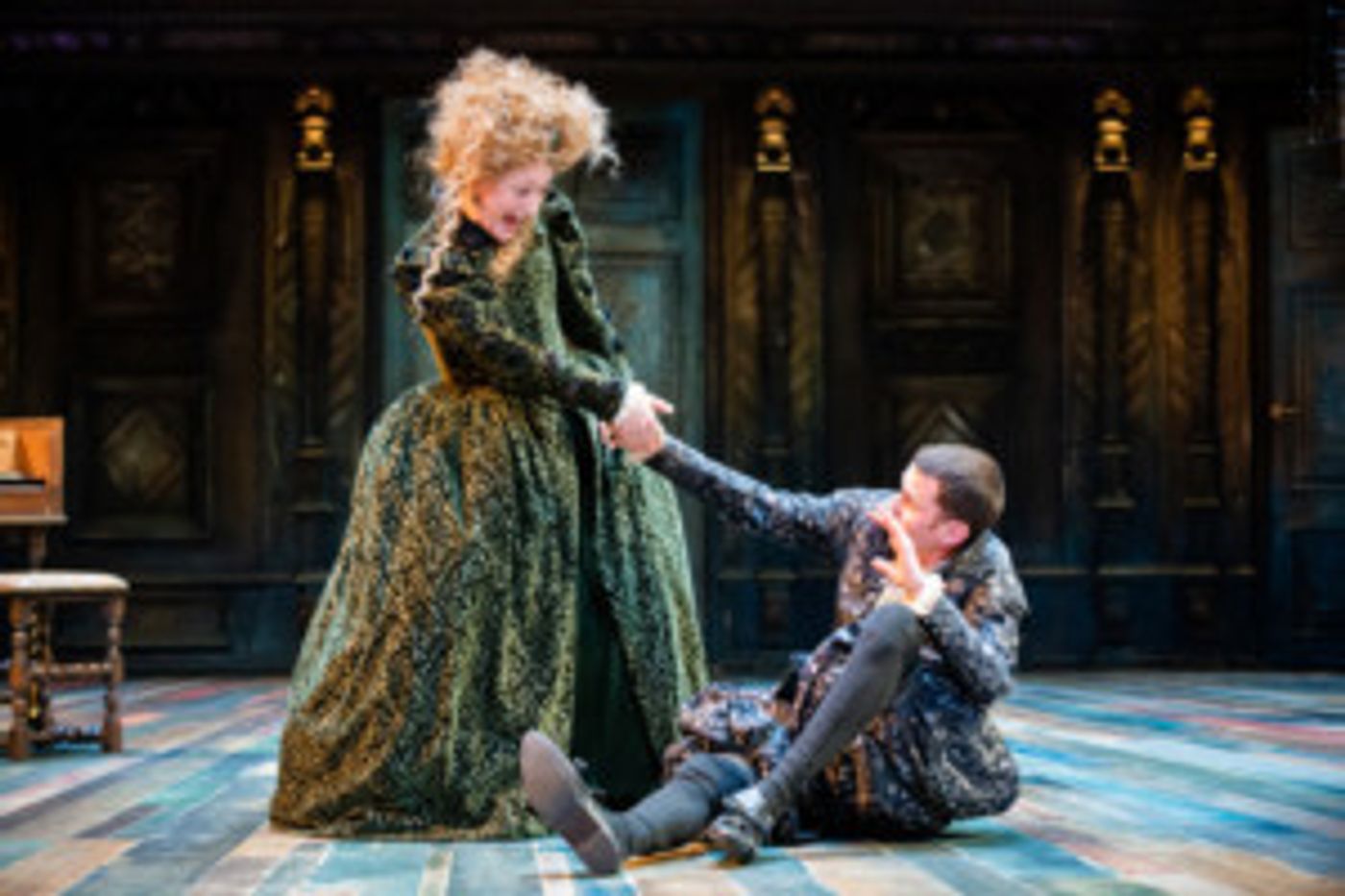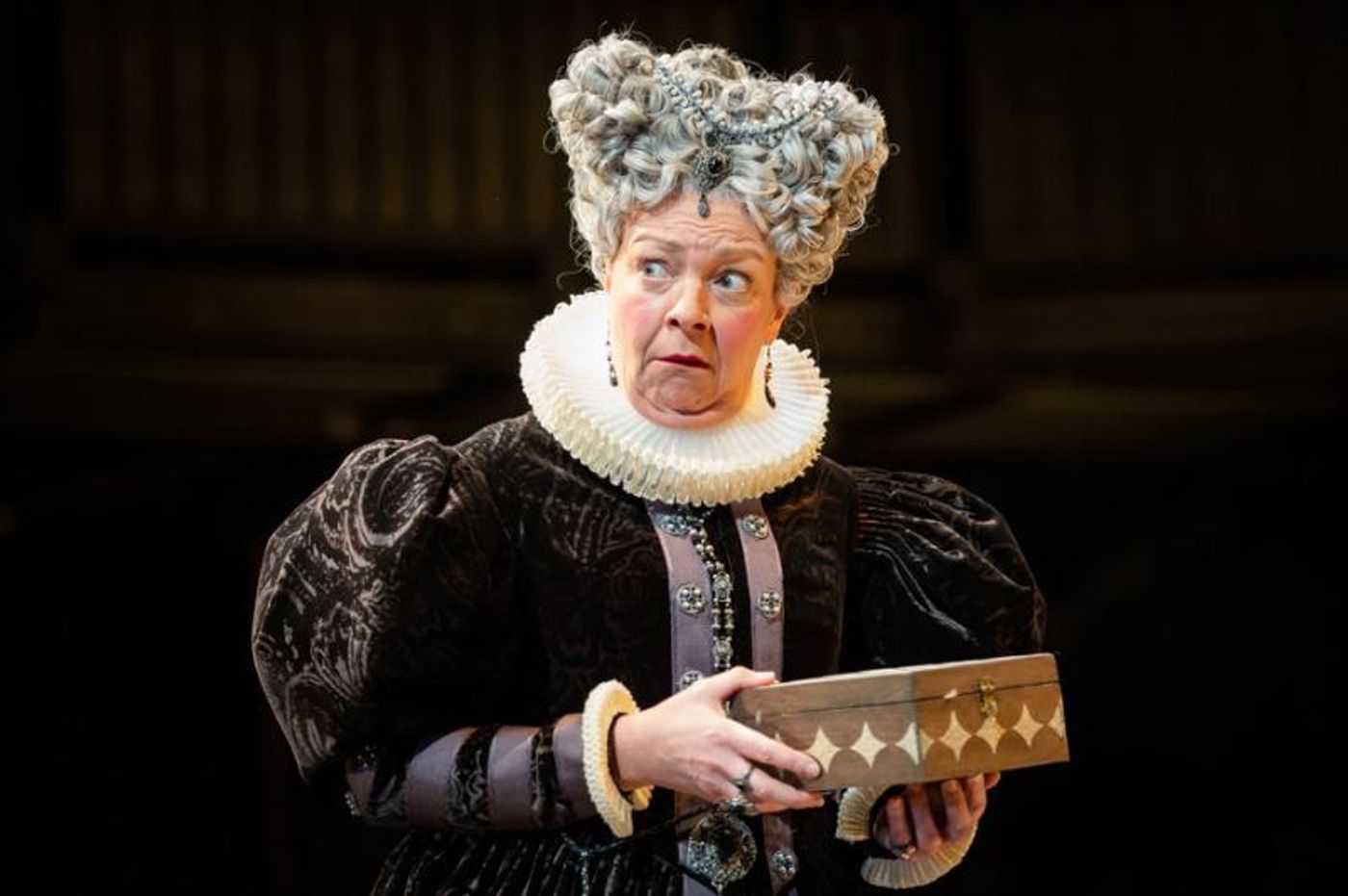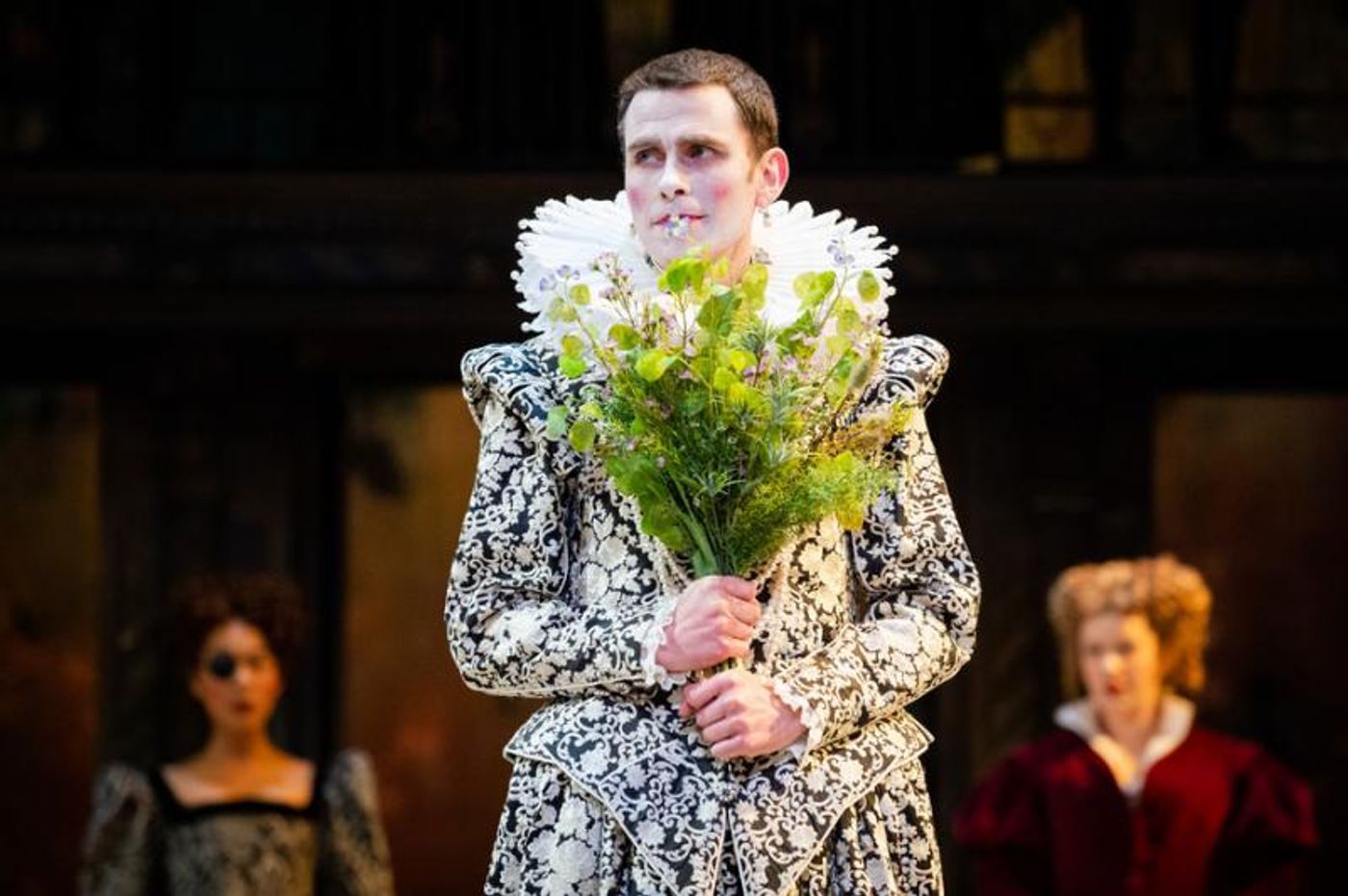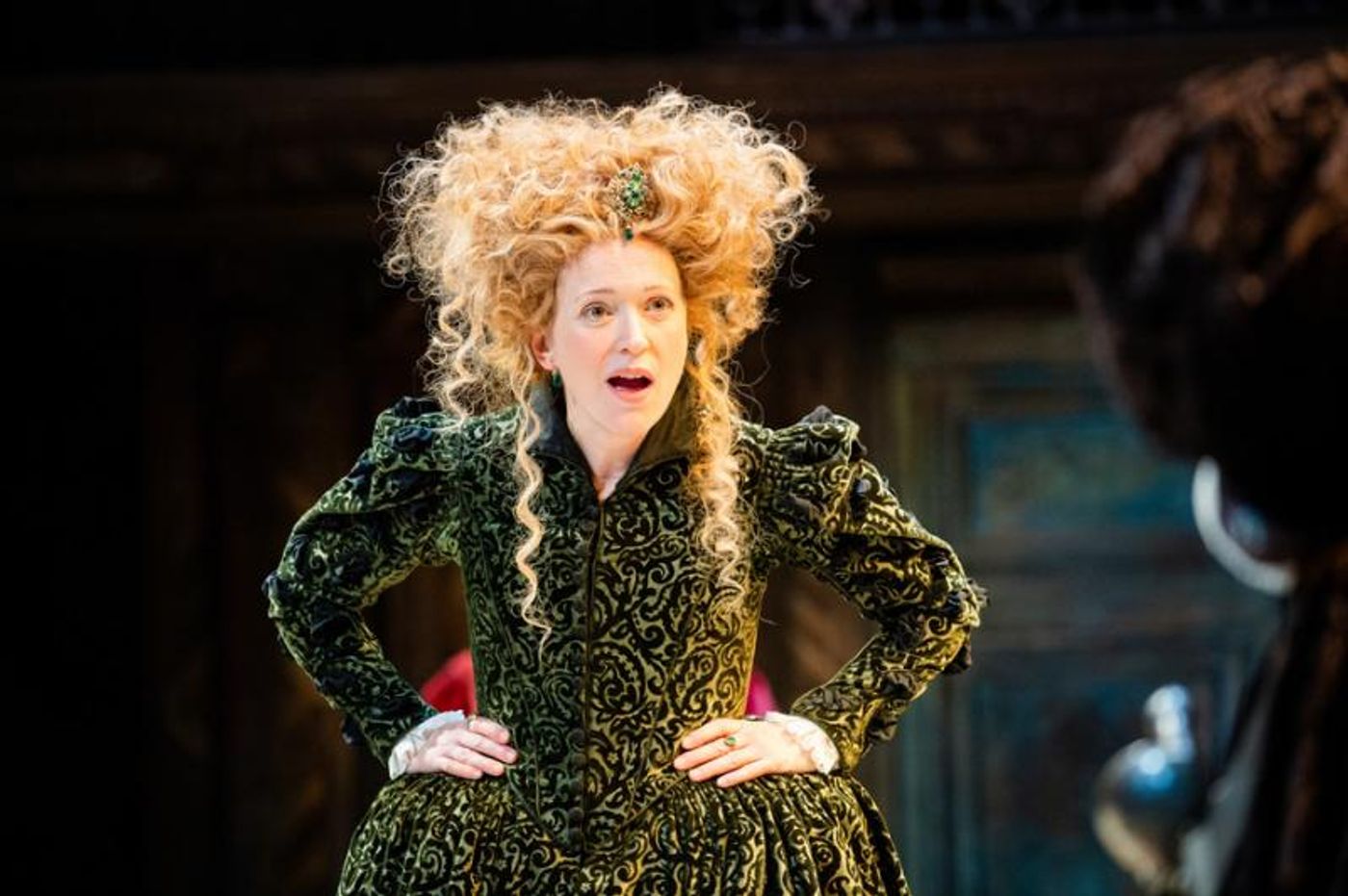Interview: Director Justin Audibert Talks THE TAMING OF THE SHREW

The Taming of the Shrew
Justin Audibert returns to the Royal Shakespeare Company to direct The Taming of the Shrew. While one of William Shakespeare's Comedies, to a modern audience, the gender politics and issues of the 1590's feel more tragic and outdated. So much so that Justin admits, "To be honest, a year ago I probably would have said to you I wouldn't do the play".
However, turning the 1590s patriarchy into a matriarchy, Justin breaks down why he chose to gender reverse the play and what effects the decision has had on the actors and audience alike.
What's one of your earliest memories of Shakespeare?
For my 12th birthday, my Aunt and Uncle brought me to the RSC to see Love's Labour's Lost. That was directed by Ian Judge and I remember the world it was set in: there was punting, these boats came on stage, so it must have been Cambridge or somewhere.
The spectacle and the magic and the size of it all just captivated me. I mean it was very different to my life growing up in Croydon!
So what led you down the path of directing?
For me, being a director is a lot about solving puzzles. With Shakespeare, the language can be a particular problem. And I for some reason love solving it and making it as clear as possible.
That's one of the reasons that I love making theatre for younger audiences. I just did The Winter's Tale for the National Theatre, as well as Macbeth. And that's not just for kids, but adults too.
I think a lot of people have been put off by Shakespeare, because they struggled at school. But actually, if the vision is clear and the actor is truly playing the character's intention, the sounds of the words themselves give you so much of the information.
And you're now directing another Shakespeare, but for the RSC. How familiar were you with The Taming of the Shrew?
Like a lot of people, I'd seen things which derived from it: 10 Things I Hate About You and Kiss Me Kate. And the versions of the play I had seen were Richard Burton and Elizabeth Taylor's, and Greg Doran's brilliant one with Jasper Britton and Alexandra Gillbreath. But I'd never read it before.
I remember having a long discussion with the late, great Cicely Berry. She said, "No-one should ever do it!" And I could see what she meant. I don't know if the world needs more imagery of men being violent towards women.
So to be honest, a year ago I probably would have said to you I wouldn't do the play.
However, the second I had this idea for staging it with the gender reversal I knew there was something there. Because you would have this whole cast of women driving all of the action, which really excites me.

The Taming of the Shrew
Brilliant! Can you take us through the world of your production?
You know, it's funny. I think people feel safe, "I know what this is: it's the 1590's, it's period". People quite like going to watch that stuff. And this production is very much of its period, it's set in 1590...it's just we've imagined that it's the women who are the dominant gender.
Women in our world control weaponry, education and money, those are things they have to control to make society work. And we impose the rules of the Elizabethan society gender relations of that class, but reverse them.
For example, in the world of traditional Elizabethan times, the women wouldn't keep eyes with men. If they gave them a glance, it was a really sexy, dangerous thing. In our world, men have to have their eyes lowered and women do all of the looking in the eyes.
So even though I've gender reversed the show, I don't think I've ever been as period period as I have on this show...period!
How did your idea for the gender reversals come about?
I've sat in a lot of classical rooms and they're always dominated by men. Sometimes not in a good way. And I thought, "Do we need to do that again?" Absolutely not.
It was way more interesting to be in a room where that wasn't the case. It's really important that within that, there are lots of powerful women who will check me and in terms of the art ensure I'm being true to the idea.
And with the brilliant Claire Price and Amanda Harris and Sophie Stanton and Melody Brown, there's no way they're going to let me do otherwise. The more truthful it is from a woman's point of view, the better the play will be. And I think Jo [Arkley] and James [Cooney] who are playing Katherine and Bianca would argue the same thing. It's interesting to have both sets of views on their characters.
I have to say, I'm not normally this chilled out on my shows. But it's just been joyful, this exchange we've had as a company. We didn't spend hours sitting around chatting, we got on with it and these things came up. And the generosity with which all sides have engaged with the ideas and the process is brilliant.

The Taming of the Shrew
So exploring it in the rehearsal room, did anything surprise you?
What's unbelievably astounding is how many words you don't understand as gendered actually are gendered.
An obvious one is "maid", meaning like a virgin. In our world, male virginity is the prized virginity. But there isn't a gendered word for being a male virgin. We've used "boy" at sometimes and "virgin" at other times.
There are loads. "Knave" is a gendered word, that's the other way round because there's not a female equivalent. We have to change "sirrah" to "wench". But you go through and sometimes there are just words that you don't know what to do with.
But sometimes I imagine reversing the genders works even better. Case in point: "If I be waspish, best beware my sting", being spoken by a man!
Totally! And that wordplay too: "Who knows not where a wasp does wear his sting? In his tail." / "In his tongue." Sometimes it works for you.
The other thing as well is we changed the classical references or took them out. "Roman Lucrece for her chastity" becomes "As chaste as the Greek Narcissus". And we took Ovid and Aristotle out because in this world, it can't be two great male thinkers. It can't be that. My favourite one we changed is "Leave that labour to great Hercules" to "Leave that labour to great Amazon".
I'm sure some people will be like, "Oh, you shouldn't have changed that!" But the thing about theatre is it is imagination and reimagining. You give things a go and see what happens. And we just went for the changes that felt good and kept the meter and bounces on.
One thing which can keep that pace from bouncing is the opening...
Yes. And thinking back to making the text clear earlier, I did decide to cut that.
But actually since then, I've thought of something that could have worked. If that opening with Christopher Sly is in contemporary society in 2019, then you go into the 1590's for the play itself.
The thing is though because we already have enough of a filter of the play. And I felt like you can't have another meta-theatrical filter on top of it. So you could do it...but to be honest (and you can put this in this interview): I am a big believer in trying to get to the pub by 10.00pm!

The Taming of the Shrew
And you know they're talking about what they think over a pint post-show! So how have audiences been reacting?
The reactions have been fascinating. There's a really interesting adaptation on in Cardiff where they're segregating the audience by gender. We're not doing any of that. People are sitting man and woman together, side by side. And the responses are definitely gendered.
You get women cheering in places, which is fun. You get men going, "Well, you've added a load of stuff!" and I can literally be like, "Nope. That's what's in there!" Sitting in the auditorium, I love it.
Honestly, I thought we would get a more negative response than we have. But particularly that last scene, it's the most electric atmosphere in there. And the cast have said that as well, being on stage. They don't quite know what to do...
I think some audiences have enjoyed themselves in spite of themselves.
It is one of Shakespeare's Comedies after all...
It is. And I think the thing is, that core of darkness, that violent in the piece is difficult in today's society. I struggled with it.
But there were two things when we set out to do this play, which were really important to me. One: we treat it as a comedy and we take it as seriously as we can as a comedy. Because I have seen dour productions, where it's just nasty all the way through.
But the other thing is that it is called The Taming of the Shrew, so it has to have the taming in it. And I have been really careful, we've only put in moments of violence where the text really supports it.
So Shakespeare gives you hints that something happens here, like Katherine gets told to halt and something happens to make them stay. I've tried not to be gratuitous and I haven't added stuff.
Photo credit: Ikin Yum
Videos

